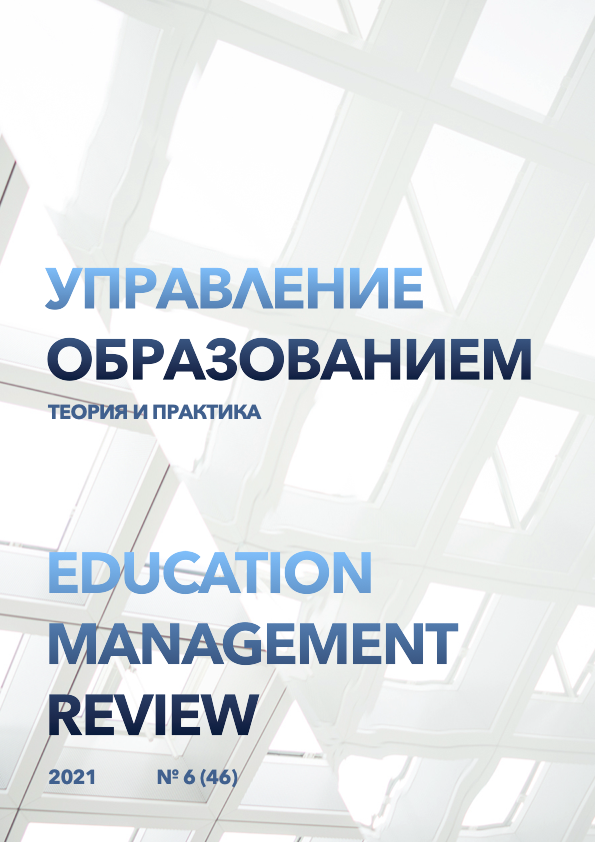Методическая разработка материала по преподавания финансового менеджмента в высших учебных заведениях
DOI:
https://doi.org/10.25726/x4874-7776-4464-wКлючевые слова:
Менеджмент, преподавание, финансы, университет, развитиеАннотация
Конституционная автономия университета и академическая свобода являются фундаментальными ценностями Европейского пространства высшего образования. Они играют важную роль в обеспечении и повышении качества высшего образования в демократическом обществе. С одной стороны, институциональную автономию университета рассматривают как измерение демократии в качестве базовой характеристики академического сообщества, с другой – как средство повышения качества высшего образования. Ключевым аспектом институциональной автономии является способность учреждений высшего образования устанавливать и реализовывать собственную политику и приоритеты в преподавании, исследовании, а также других аспектах деятельности в рамках их миссии. С целью раскрытия сущности понятия «институциональная автономия университета» в Европейском пространстве высшего образования обратимся к анализу ключевых стратегических документов, определяющих приоритеты современного развития высшего образования.
Библиографические ссылки
Adalbert, J. R., & Ilyas, A. M. (2022). A focus on the future of opioid prescribing: implementation of a virtual opioid and pain management module for medical students. BMC Medical Education, 22(1). https://doi.org/10.1186/s12909-021-03058-z
Batista, J. P. B., Torre, C., Sousa Lobo, J. M., & Sepodes, B. (2022). A review of the continuous professional development system for pharmacists. Human Resources for Health, 20(1). https://doi.org/10.1186/s12960-021-00700-1
Busoi, G., Ali, A., & Gardiner, K. (2022). Antecedents of emotional labour for holiday representatives: A framework for tourism workers. Tourism Management, 89. https://doi.org/10.1016/j.tourman.2021.104450
de Wit, M., Zipfel, N., Horreh, B., Hulshof, C. T. J., Wind, H., & de Boer, A. G. E. M. (2022). Training on involving cognitions and perceptions in the occupational health management and work disability assessment of workers: development and evaluation. BMC Medical Education, 22(1). https://doi.org/10.1186/s12909-021-03084-x
Florom-Smith, A. L., Klingenberger, J. K., & DiBiase, C. P. (2022). Commercial space tourism: An integrative review of spaceflight participant psychological assessment and training. REACH, 25–26. https://doi.org/10.1016/j.reach.2021.100043
Maraza-Quispe, B., Valderrama-Chauca, E. D., Cari-Mogrovejo, L. H., Apaza-Huanca, J. M., & Sanchez-Ilabaca, J. (2022). A predictive model implemented in knime based on learning analytics for timely decision making in virtual learning environments. International Journal of Information and Education Technology, 12(2), 91–99. https://doi.org/10.18178/ijiet.2022.12.2.1591
McLean, S., Coventon, L., Finch, C. F., Dallat, C., Carden, T., & Salmon, P. M. (2022). Evaluation of a systems ergonomics-based incident reporting system. Applied Ergonomics, 100. https://doi.org/10.1016/j.apergo.2021.103651
Rowe, S. Y., Ross-Degnan, D., Peters, D. H., Holloway, K. A., & Rowe, A. K. (2022). The effectiveness of supervision strategies to improve health care provider practices in low- and middle-income countries: secondary analysis of a systematic review. Human Resources for Health, 20(1). https://doi.org/10.1186/s12960-021-00683-z
Seufert, C., Oberdörfer, S., Roth, A., Grafe, S., Lugrin, J.-L., & Latoschik, M. E. (2022). Classroom management competency enhancement for student teachers using a fully immersive virtual classroom. Computers and Education, 179. https://doi.org/10.1016/j.compedu.2021.104410
Simonson, R. J., Keebler, J. R., Blickensderfer, E. L., & Besuijen, R. (2022). Impact of alarm management and automation on abnormal operations: A human-in-the-loop simulation study. Applied Ergonomics, 100. https://doi.org/10.1016/j.apergo.2021.103670
Sprajcer, M., Thomas, M. J. W., Sargent, C., Crowther, M. E., Boivin, D. B., Wong, I. S., … Dawson, D. (2022). How effective are Fatigue Risk Management Systems (FRMS)? A review. Accident Analysis and Prevention, 165. https://doi.org/10.1016/j.aap.2021.106398
Tanvi Newaz, M., Ershadi, M., Carothers, L., Jefferies, M., & Davis, P. (2022). A review and assessment of technologies for addressing the risk of falling from height on construction sites. Safety Science, 147. https://doi.org/10.1016/j.ssci.2021.105618
Wang, D., Sheng, Z., Wang, X., Griffin, M. A., Zhang, Y., & Wang, Z. (2022). How team safety stressors affect proactive and prosocial safety behaviors: Felt safety responsibility and affective commitment as mediators. Safety Science, 147. https://doi.org/10.1016/j.ssci.2021.105625
Yang, F., & Miang Goh, Y. (2022). VR and MR technology for safety management education: An authentic learning approach. Safety Science, 148. https://doi.org/10.1016/j.ssci.2021.105645




